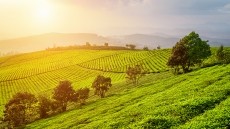CANADEAN BEVERAGE PACKAGING 2014, BRUSSELS
Smoothie brand Froosh warns of ‘social washing’ on supply chain sustainability
This content item was originally published on www.beveragedaily.com, a William Reed online publication.

Anna Hagemann-Rise, group communications & CSR manager, Froosh, told BeverageDaily.com: “Traceability in terms of the supply chain is a growing trend. And it feels like most of the bigger companies, at least, need a traceability supply chain focus, because this is what the consumers want. This is a good thing.
“But to my mind – a lot of this is just social washing. You try to wash your hands and might say that you’re doing something and not just walking the walk. We need to look at the origin of our products, get back to the roots, and before talking about it understand it.”
Hagemann-Rise was speaking on the margins of the Canadean Beverage Packaging 2014 event in Brussels this week, and she said Froosh had a close relationship with fruit growers in regions like Africa, where most of our bananas and mangoes come from.
“Given the fact that 50% of the fruit in our smoothies right now comes from developing countries, we have a specific interest in visiting these countries,” she said.
“We bring consumers, customer and the media to these farms – and they have an amazing impact on sustainable development in these local and very rural communities,” she added.
“What we see when we [Froosh] get there is that a lot of NGOs there give out handouts and development aid. But unfortunately is just not the right way to go. It doesn’t work on the ground,” she added, noting that money disappears due to corruption or is spent on arms.
“But what does work is buying goods from the fruit farms and making it easier for them to export their goods to America and the EU. So we’re trying to fight trade barriers on behalf of developing countries, so to speak,” Hagemann-Rise said.






















